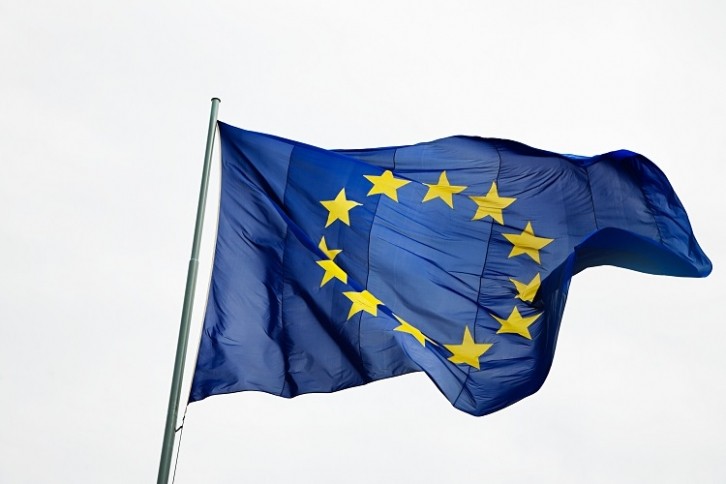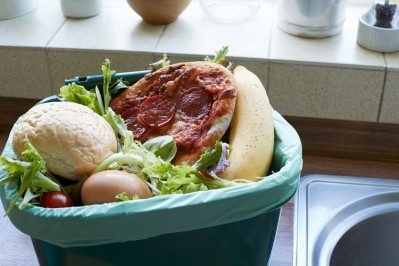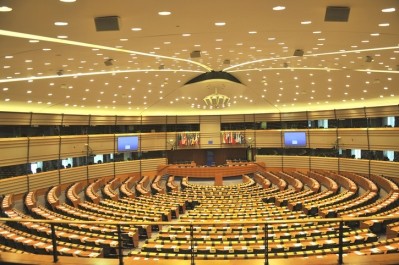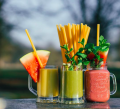European Commission assigns more than €185 million to grow agrifood products

Adopting a 2024 promotion policy work programme, the EC will plough the multi-million-euro investment into developing new market opportunities for the agrifood sector.
“For 2024, the work programme contains a budget of €185.9m for co-finance promotion activities designed to raise awareness of EU agricultural products’ quality, gastronomic traditions, and nutritional and sustainability features,” Olof Gill, spokesperson for trade and agriculture at the European Commission (EC), told FoodNavigator.
While a welcome sign of support and progress in pursuing agrifood development, the €185.9m amount is the same as 2023.
“The budget needs to be robust and maintain its capacity for adaptation to respond to ongoing challenges,” Ignacio Sanchez Recarte, Secretary General at the Comité Vin, which represents the European wine sector and closely follows the Promotion Dossier, told FoodNavigator. “Yet, it is worth mentioning that the budget in 2020 was closer to €200m.”
Positive differences are present in the 2024 EU agrifood promotion policy, however. Sanchez reports there is “no discriminatory criteria against alcoholic beverages and red/processed meat put forward as it was done in the 2023 initial proposal, under the ‘relevance’ sub-criterion within the award criteria assessment”.
Allocating budgetary spend
Through its capital injection, the EC aims to grow prospects for farmers and the wider food sector in the EU and support them in maintaining their existing work. Along with boosting sustainable agricultural product manufacturing and consumption, the promotion policy strives to support the EU agrifood sector’s sustainable recovery in a challenging economic context.
In 2024, agrifood promotion campaigns will focus on featuring products from sustainable farming practices that lower dependence on pesticides and antimicrobials, minimise fertilisation and water pollution, reduce greenhouse gas emissions (GHG), boost organic farming, and elevate animal welfare.
Sustainably produced agrifood products will receive €62m, including €42m for organic products. As part of their objectives, the EU hopes to further raise European consumers’ recognition of the EU organic logo and organic product consumption, aligning with the existing EU action plan for organic production.
The EC will split the total amount of funding between EU internal market campaigns and those in third countries, with €81.3m going to European projects and €85.1m injected into third countries.
In assigning the spend to projects inside and outside the EU, the EC has identified countries and regions with high growth potential as main promotion targets. These include China, Japan, South Korea, Singapore, and North America. In the EU, the UK remains a key export market, the EC detailed, making up over a fifth of exports.
Growing EU and global production
“The EU’s promotion policy helps EU producers sell their farm products in an increasingly competitive global marketplace while delivering jobs and growth at home,” said Gill.
The basis for the EU agrifood promotion policy is Regulation EU 1144/2014, which concerns the promotional measures for agrifood products in the internal market and third countries. The Regulation sets out the main aim of agrifood promotion policy: to enhance the competitiveness of EU farmers and agrifood businesses.
Based on the said Regulation, the European Commission prepares an annual work programme to support EU farmers and agrifood businesses, Gill said, “whose products meet the high quality, safety and environmental standards applicable in the EU”.
As per the Regulation, two specific types of promotion action are available: those run by European trade or inter-trade associations and co-financed by the EU and those run directly by the EU itself, such as diplomatic offensives by the Commissioner in non-EU countries to expand upon agrifood trade or participation in fairs and communication campaigns.
“The policy was implemented to increase consumers’ awareness of the merits of the Union’s agricultural products and production methods and to increase the awareness and recognition of Union quality schemes,” added Gill.
“The promotion policy must continue to support all agricultural sectors to achieve the awareness of the high standards of the EU in terms of food production and value-added,” said Sanchez. Otherwise, the concern is that EU products will lose market share to others. “The overall geopolitical ferment is creating uncertainty about the trade relations with third countries in the future and their possible implications for projects,” added Sanchez.
Trade opportunities for agrifood in 2024
Funding in 2024 will support EU quality schemes and the traditional and gastronomic features of EU agrifood products. In addition, it will also help organic products, fresh fruit and vegetables in the context of healthy diets and sustainably produced products.
The plan aims to enhance the awareness of the EU’s quality schemes and products registered as protected designation of origin (PDO), protected geographical indication (PGI) and traditional speciality guaranteed (TSG). Over 3,500 names of agrifood products and beverages are currently protected under the policy. It aims to ensure consumers have access to authentic products and preserve the EU’s cultural and culinary heritage.
All agricultural products in the context of food are eligible, as are certain processed food products such as pastry and pasta, provided they meet the legal requirements. Promotion activities aimed at consumers on the internal market must refer to and align with the targeted Member State(s) dietary guidelines.
“Agrifood product developers will be able to open new markets for their products and quality schemes, diversify their trading partners and become more competitive,” Gill continued. Moreover, these opportunities will be possible in the EU and global markets.
“Budget allocations need to mirror market realities and take into account the submission statistics,” continued Sanchez. The programme, therefore, Sanchez continues, requires more significant support for simple programmes, quality schemes and other sustainable agricultural practices on the internal market. “As for multi programmes, ideally, the budget would need to be boosted for third countries,” Sanchez added.
The 2024 policy has introduced a “flexibility clause”, a welcome move for many operators. Re-allocating unused funds from simple to multi-products will avoid possible budgetary reductions on the grounds that the budget is underused. However, Sanchez noted that the project submissions decrease is mainly due to the continuation rules and not lack of interest.
Moving past production limitations
“The main objective is to support the competitiveness of EU farmers and agrifood businesses while supporting their transition towards more sustainable food production,” added Gill.
“The annual work programmes should support the development of consumption trends and not pre-empt consumers’ behaviour,” said Sanchez. As a result, Sanchez highlighted that any disproportionate allocation between organic and other sustainable practices that do not match the offer and demand driven by the market needs to be avoided.
“The EU Promotion Policy has been very successful in boosting the competitiveness of EU agrifood products,” said Sanchez. The hope is for it to continue for all food and beverage industry sectors.
Reaching agrifood production and consumption goals
Amid growing health and sustainability consciousness and subsequent pressure this puts on agrifood development and supply chains, the EC’s financial support is seen as a positive step towards bolstering food security.
“This support is especially important at a time when the sector is facing inflation and geopolitical uncertainties,” said Gill. “In the event of serious market disturbance, loss of consumer confidence or other specific problems, the policy helps restore normal market conditions.”
In an evaluation of the EU agricultural promotion policy, Gill said: “The policy and, therefore, the annual spending had a positive impact on the agrifood sector, and promotion activities were effective.”
“The disproportionate allocation between organic and other sustainable practices represents a challenge because it does not match the reality of production and consumption,” said Sanchez. Despite this, maintaining the overall budget and eliminating discriminatory criteria provide certainty to those operators who depend on these programmes for promotion.
In 2023, the EU held a series of information days detailing the annual work programme and calls for proposals, exploring trade opportunities and promoting agrifood products in the EU and abroad. The EU will hold information sessions on 31st January and 1st February 2024. The European Research Executive Agency (REA) will hold proposal calls from 18th January to 14th May 2024.







